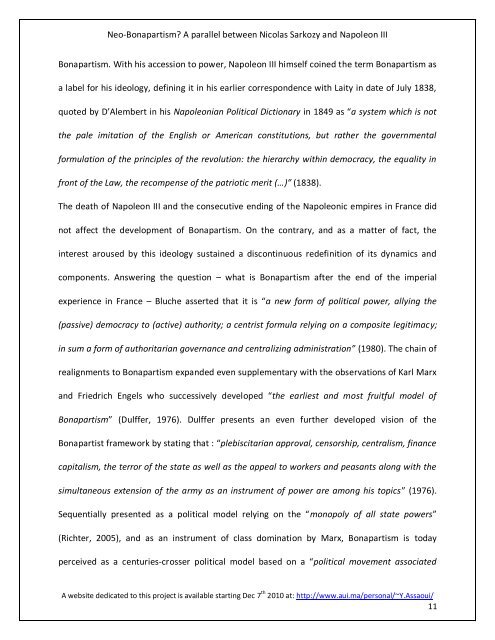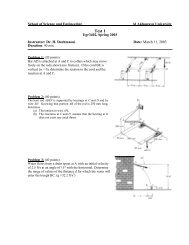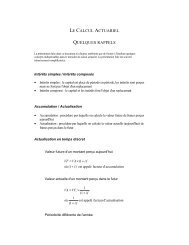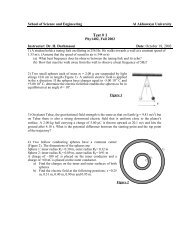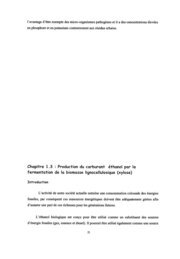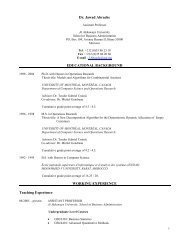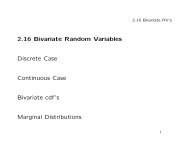Neo-Bonapartism? A parallel between Nicolas Sarkozy and ...
Neo-Bonapartism? A parallel between Nicolas Sarkozy and ...
Neo-Bonapartism? A parallel between Nicolas Sarkozy and ...
Create successful ePaper yourself
Turn your PDF publications into a flip-book with our unique Google optimized e-Paper software.
<strong>Neo</strong>-<strong>Bonapartism</strong>? A <strong>parallel</strong> <strong>between</strong> <strong>Nicolas</strong> <strong>Sarkozy</strong> <strong>and</strong> Napoleon III<br />
<strong>Bonapartism</strong>. With his accession to power, Napoleon III himself coined the term <strong>Bonapartism</strong> as<br />
a label for his ideology, defining it in his earlier correspondence with Laity in date of July 1838,<br />
quoted by D’Alembert in his Napoleonian Political Dictionary in 1849 as “a system which is not<br />
the pale imitation of the English or American constitutions, but rather the governmental<br />
formulation of the principles of the revolution: the hierarchy within democracy, the equality in<br />
front of the Law, the recompense of the patriotic merit (…)” (1838).<br />
The death of Napoleon III <strong>and</strong> the consecutive ending of the Napoleonic empires in France did<br />
not affect the development of <strong>Bonapartism</strong>. On the contrary, <strong>and</strong> as a matter of fact, the<br />
interest aroused by this ideology sustained a discontinuous redefinition of its dynamics <strong>and</strong><br />
components. Answering the question – what is <strong>Bonapartism</strong> after the end of the imperial<br />
experience in France – Bluche asserted that it is “a new form of political power, allying the<br />
(passive) democracy to (active) authority; a centrist formula relying on a composite legitimacy;<br />
in sum a form of authoritarian governance <strong>and</strong> centralizing administration” (1980). The chain of<br />
realignments to <strong>Bonapartism</strong> exp<strong>and</strong>ed even supplementary with the observations of Karl Marx<br />
<strong>and</strong> Friedrich Engels who successively developed “the earliest <strong>and</strong> most fruitful model of<br />
<strong>Bonapartism</strong>” (Dulffer, 1976). Dulffer presents an even further developed vision of the<br />
Bonapartist framework by stating that : “plebiscitarian approval, censorship, centralism, finance<br />
capitalism, the terror of the state as well as the appeal to workers <strong>and</strong> peasants along with the<br />
simultaneous extension of the army as an instrument of power are among his topics” (1976).<br />
Sequentially presented as a political model relying on the “monopoly of all state powers”<br />
(Richter, 2005), <strong>and</strong> as an instrument of class domination by Marx, <strong>Bonapartism</strong> is today<br />
perceived as a centuries-crosser political model based on a “political movement associated<br />
A website dedicated to this project is available starting Dec 7 th 2010 at: http://www.aui.ma/personal/~Y.Assaoui/<br />
11


